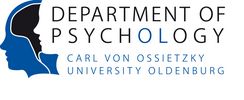Kontakt
Sekretariat
Carsten Gießing
Department of Psychology
School of Medicine and Health Sciences
Carl von Ossietzky University Oldenburg
26111 Oldenburg
Germany
Phone +49-(0) 441 798 3866
Email: carsten.giessing@uol.de
Consultation hour for analysing fMRI data and other methodological questions
every Thursday 2:00 pm - 4:00 pm, room A7-0-053 – Book an appointment here (Stud.IP)
Research profile
How do self-organised brain networks underlie cognitive performance? To address this question, I use graph-theoretic connectivity analyses to investigate the relationship between the organisation of functional brain networks and cognitive processes. An important aspect of my work is the development and application of methodological approaches to assess and improve the robustness of brain-derived parameters. These methods lay the foundation for more reliable, individualised predictions of brain-behaviour associations, contributing to the future advancement of personalised precision medicine.
Major research topics
- Graph-theoretic analyses of functional brain networks: Applying advanced graph theory methods to explore connectivity patterns and network dynamics within functional brain data.
- Development of robustness checking routines for fMRI data analysis: Implementing systematic approaches, such as multiverse analysis, to assess the robustness of findings in functional neuroimaging studies.
- Bayesian knowledge transfer to improve replicability in small sample analyses: Use of Bayesian frameworks to investigate generalisability and improve replicability in studies with limited sample size.
- Pharmacological manipulation of neural states: Investigating how drug interventions modulate the configuration of brain networks, contributing to the understanding of neurochemical influences on cognition and behaviour.
Academic positions
| 2011 – 2014 | Associate junior fellowship of the Hanse-Wissenschaftskolleg, Germany |
| 2009 – 2011 | Postdoctoral fellow at the Bullmore Lab, Cambridge University, UK |
| Since 2005 | Senior scientist in the Biological Psychology Lab, Carl von Ossietzky University of Oldenburg, Germany |
| 2002 – 2005 | PhD student and research associate in the Research Centre Jülich, Germany in the group of Prof. Gereon Fink Co-supervised by Prof. Frank Rösler Institute of Psychology, Philipps-Universität Marburg, Germany |
Education
| 2007 | Doctoral graduation (Dr. rer. nat.), Philipps-University Marburg |
| 2001 | Diploma in Psychology, Philipps-University Marburg
|
Teaching experiences since 2005
Lectures, seminars and tutorials with the focus on statistics, experimental designs and the analysis of fMRI data
Representative publications
Alavash, M., Hilgetag, C. C., Thiel, C. M., & Gießing, C. (2015). Persistency and flexibility of complex brain networks underlie dual-task interference. Human Brain Mapping, 36(9), 3542–3562. doi.org/10.1002/hbm.22861
Burkhardt, M., & Gießing, C. (2024). A dynamic functional connectivity toolbox for multiverse analysis. bioRxiv, 2024.01.21.576546. doi.org/10.1101/2024.01.21.576546
Burkhardt, M., Thiel, C. M., & Gießing, C. (2022). Robust correlation for link definition in resting-state fMRI brain networks can reduce motion-related artifacts. Brain Connectivity, 12(1), 18–25. doi.org/10.1089/brain.2020.1005
Gießing, C., Thiel, C. M., Alexander-Bloch, A. F., Patel, A. X., & Bullmore, E. T. (2013). Human brain functional network changes associated with enhanced and impaired attentional task performance. Journal of Neuroscience, 33(14), 5903–5914. doi.org/10.1523/JNEUROSCI.4854-12.2013
Kristanto, D., Burkhardt, M., Thiel, C. M., Debener, S., Gießing, C., & Hildebrandt, A. (2024). The multiverse of data preprocessing and analysis in graph-based fMRI: A systematic literature review of analytical choices fed into a decision support tool for informed analysis. Neuroscience & Biobehavioral Reviews, 105846. doi.org/10.1016/j.neubiorev.2024.105846
Viering, T., Hoekstra, P. J., Philipsen, A., Naaijen, J., Dietrich, A., Hartman, C. A., … Gießing, C. (2021). Emotion dysregulation and integration of emotion-related brain networks affect intraindividual change in ADHD severity throughout late adolescence. NeuroImage, 245, 118729. doi.org/10.1016/j.neuroimage.2021.118729
A complete list of publications can be found here:

